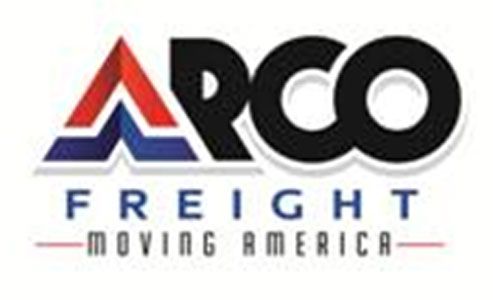Flatbed Shipping: Expert Tips for Oversized Loads
When it comes to the world of transportation and logistics, flatbed shipping stands out as a crucial player, especially when oversized loads are in the mix. Imagine the challenge of moving a colossal piece of machinery or a massive construction beam from point A to point B. It's not something that can be squeezed into a standard truck or container. This is where flatbed shipping shines, offering a versatile solution for hauling those big, bulky items that just don't fit the mold of conventional freight.
Understanding Flatbed Shipping
When we delve into the world of transporting oversized and unconventional loads, flatbed shipping stands out as a beacon of versatility and reliability. The essence of flatbed shipping lies in the unique design of the trailers used. Unlike enclosed trailers, flatbeds are entirely open, offering a flat, unobstructed platform that can accommodate a wide variety of goods. This openness is particularly advantageous for loads that are too large or awkwardly shaped to fit within the confines of a standard trailer.
Flatbed trailers come in several variations, each designed to cater to specific types of cargo and shipping requirements. The standard flatbed is the most common, with a flat, open deck ideal for goods that can withstand exposure to the elements. For items that are particularly long, extendable flatbeds, also known as stretch flatbeds, offer the flexibility needed to transport them safely. When the cargo is not just oversized but also exceptionally heavy, lowboy trailers come into play. Their lower deck height allows for the transport of tall items while staying within height restrictions on roads and under bridges.
The advantage of using flatbed shipping for oversized loads cannot be overstated. The ease of loading and unloading heavy or bulky items from the sides or above, without the constraints of enclosed trailer walls or ceilings, significantly reduces labor and time. This accessibility is not just a matter of convenience but also enhances safety, minimizing the risk of damage to the cargo during the loading and unloading process.
Moreover, the versatility of flatbed shipping extends to the types of materials and equipment that can be transported. From construction materials like lumber and steel beams to heavy machinery such as bulldozers and cranes, flatbeds can carry it all. Even more specialized items, such as wind turbine blades or large industrial containers, find a suitable transport solution in flatbed trailers.
Despite its many benefits, flatbed shipping requires expert knowledge and handling. The lack of physical barriers means that securing the load properly is paramount to ensure safety during transport. This involves using an array of tie-downs, such as chains, straps, and binders, tailored to the specific needs of the cargo. The skill and experience of the driver and the loading team play a crucial role in preparing the load for transport, ensuring that it remains stable and secure over miles of varied road conditions.
Flatbed shipping offers a blend of flexibility, convenience, and efficiency unmatched by other forms of transportation for oversized loads. Its ability to adapt to the unique demands of each cargo, coupled with the expertise of seasoned professionals in the field, makes it an indispensable part of the logistics and transportation industry.
Pre-Transportation Planning
Transporting oversized loads is not as simple as just loading up and hitting the road. It requires meticulous planning and attention to detail. Every inch of the cargo needs to be measured, and its weight assessed to ensure it complies with legal requirements. Securing the necessary permits is a crucial step, as regulations for oversized loads vary from one region to another. Route planning is another critical aspect, taking into account factors like road conditions, clearance heights, and weight limits on bridges to ensure a smooth and safe journey.
Loading and Securing the Load
When it comes to flatbed shipping, particularly for oversized loads, the processes of loading and securing the cargo are pivotal steps that demand meticulous attention to detail and adherence to safety standards. The nature of flatbed trailers, with their open and unrestricted space, offers great flexibility but also requires a comprehensive approach to ensure the load is transported safely and arrives at its destination undamaged.
Loading Oversized Items
The process begins with loading the oversized items onto the flatbed trailer. Given the diversity of items that can be transported via flatbed shipping—from industrial machinery to large construction materials—each type of cargo necessitates a tailored approach to loading. Heavy machinery might require the use of cranes or forklifts, while longer items like steel beams or lumber might be loaded using specialized equipment designed to handle their length and weight.
A critical aspect of loading is the placement of the cargo on the flatbed. The goal is to distribute the weight evenly across the platform to maintain balance and prevent undue stress on any part of the trailer. This balance is not only crucial for the safety of the transport but also helps in adhering to legal weight distribution requirements. Moreover, the positioning of the load must take into consideration the overall height and width to ensure compliance with transportation regulations and to avoid any potential obstructions during the journey.
Securing the Load
Once the cargo is loaded, the next critical step is securing it to the flatbed. This stage cannot be overstated in its importance, as the safety of the transport operation, the cargo, and other road users hinges on the effectiveness of the securing methods employed. The type of securing devices used—whether chains, straps, binders, or a combination thereof—depends on the cargo's nature, weight, and size.
The fundamental principle in securing the load is to prevent any movement during transit. This includes forward, backward, lateral, and vertical movements, which could lead to shifting, tipping, or even the cargo becoming dislodged. Expertise in applying the right tension to tie-downs and using the appropriate number of securing points is essential. The goal is to create a secure bond between the cargo and the flatbed, essentially making them move as one unit.
For oversized loads, additional considerations come into play, such as the need for specialized securing equipment or custom solutions to address unique shapes or sizes. The expertise of the loading team, often backed by years of experience in handling a variety of cargo types, is invaluable in devising and implementing these solutions.
Safety Checks and Inspections
Before the journey begins, a thorough inspection of the load and its securing mechanisms is mandatory. This final check ensures that all safety measures are in place and that the cargo is secure. It's also an opportunity to reassess the balance and distribution of the load, ensuring that it adheres to legal requirements and is safe for transport.
The process of loading and securing oversized loads on flatbed trailers is a blend of science and art. It requires not just the right tools and equipment but also a deep understanding of the principles of weight distribution, securing techniques, and safety standards. The meticulous execution of these steps is what ensures the successful and safe transportation of oversized loads, reinforcing the vital role of flatbed shipping in the logistics and transportation industry.
On the Road: Transportation Best Practices
Once the journey begins, the focus shifts to safe transportation practices. Drivers hauling oversized loads need to be skilled and experienced, as maneuvering a flatbed truck loaded with a massive item is no small feat. Pilot cars often accompany these trucks, helping to navigate traffic and alert other road users. Communication between the truck driver and pilot car operators is key, especially when dealing with narrow passages or unexpected obstacles.
Regulatory Compliance and Legal Considerations
Navigating the legal landscape is a significant part of flatbed shipping. Adhering to the myriad of regulations and ensuring compliance with local, state, and federal laws is essential to avoid penalties and delays. Understanding the legalities surrounding weight, height, length, and width restrictions is crucial, as is ensuring adequate insurance coverage to protect against potential liabilities.
Case Studies and Expert Insights
To truly understand the intricacies of flatbed shipping, one must look at real-world scenarios where skill and precision made all the difference. Consider a case where a company needed to transport a massive wind turbine blade across several states. The blade, stretching over 200 feet in length, presented a logistical nightmare. However, through careful planning, route analysis, and coordination with local authorities, the transportation was executed flawlessly, showcasing the potential of well-managed flatbed shipping.
Experts in the field often share valuable insights that can only be gained through years of experience. For instance, one seasoned flatbed operator emphasized the importance of always preparing for the unexpected. Weather conditions, road closures, and even mechanical issues can arise suddenly, and the ability to adapt and respond quickly is crucial for the safe and timely delivery of oversized loads.
Conclusion
In the dynamic and challenging world of logistics, flatbed shipping emerges as a vital solution for transporting oversized loads. The process, from meticulous pre-transportation planning and careful loading to navigating the complexities of legal compliance and on-the-road safety, demands a high level of expertise and attention to detail. Whether it's construction materials, industrial machinery, or other large items, flatbed shipping provides the flexibility and efficiency needed to move these loads safely and effectively.
The success of flatbed shipping lies not just in the equipment and technology used but in the skill and experience of the people behind the wheel and those planning every step of the journey. As we've seen through case studies and expert insights, overcoming the challenges of transporting oversized loads is possible with the right approach and a commitment to safety and compliance.
For businesses and individuals in Jerome, ID, facing the daunting task of moving large items, the key is to partner with experienced flatbed shipping providers like us at
Arco Freight. We pride ourselves on our ability to navigate the complexities of oversized load transportation and ensure a smooth, successful process. With our expert team, state-of-the-art equipment, and unwavering commitment to safety and compliance, we at Arco Freight stand ready to meet your flatbed shipping needs. Contact us today at
208-324-4706 to discuss how we can assist you with your logistics challenges. With careful planning, expert handling, and adherence to regulations, flatbed shipping continues to be an indispensable service in the logistics and transportation industry, and Arco Freight is here to provide that service with excellence.
FAQ’s
What qualifies as an oversized load for flatbed shipping?
An oversized load typically exceeds the standard legal dimensions set for freight on public roads, usually in terms of width, height, or length. The specific limits can vary by state or country, but generally, any load that extends beyond the standard flatbed dimensions (about 8.5 feet wide and 13.5 feet high) might be considered oversized.
Do I always need a permit for transporting oversized loads on a flatbed?
Yes, most jurisdictions require special permits for oversized loads due to the potential impact on road safety and infrastructure. The requirements for these permits can vary widely, so it's crucial to check the regulations in each area the load will pass through.
How do I secure an oversized load on a flatbed trailer?
Securing an oversized load involves using the appropriate tie-downs, such as chains, straps, and binders, to ensure the cargo doesn't shift, fall, or otherwise become a hazard during transport. The specific methods and materials depend on the cargo's size, shape, and weight.
Can I transport an oversized load across state lines?
Yes, you can transport oversized loads across state lines, but it's important to obtain the necessary permits from each state you'll be passing through. Each state has its own regulations and requirements for oversized loads, so advance planning is essential.
What are the risks associated with flatbed shipping of oversized loads, and how can they be mitigated?
The risks include potential damage to the cargo or infrastructure, accidents due to improper securing, and delays from regulatory non-compliance. These risks can be mitigated through careful planning, securing the right permits, using experienced drivers and escort vehicles, and ensuring the load is properly secured and balanced on the flatbed.










